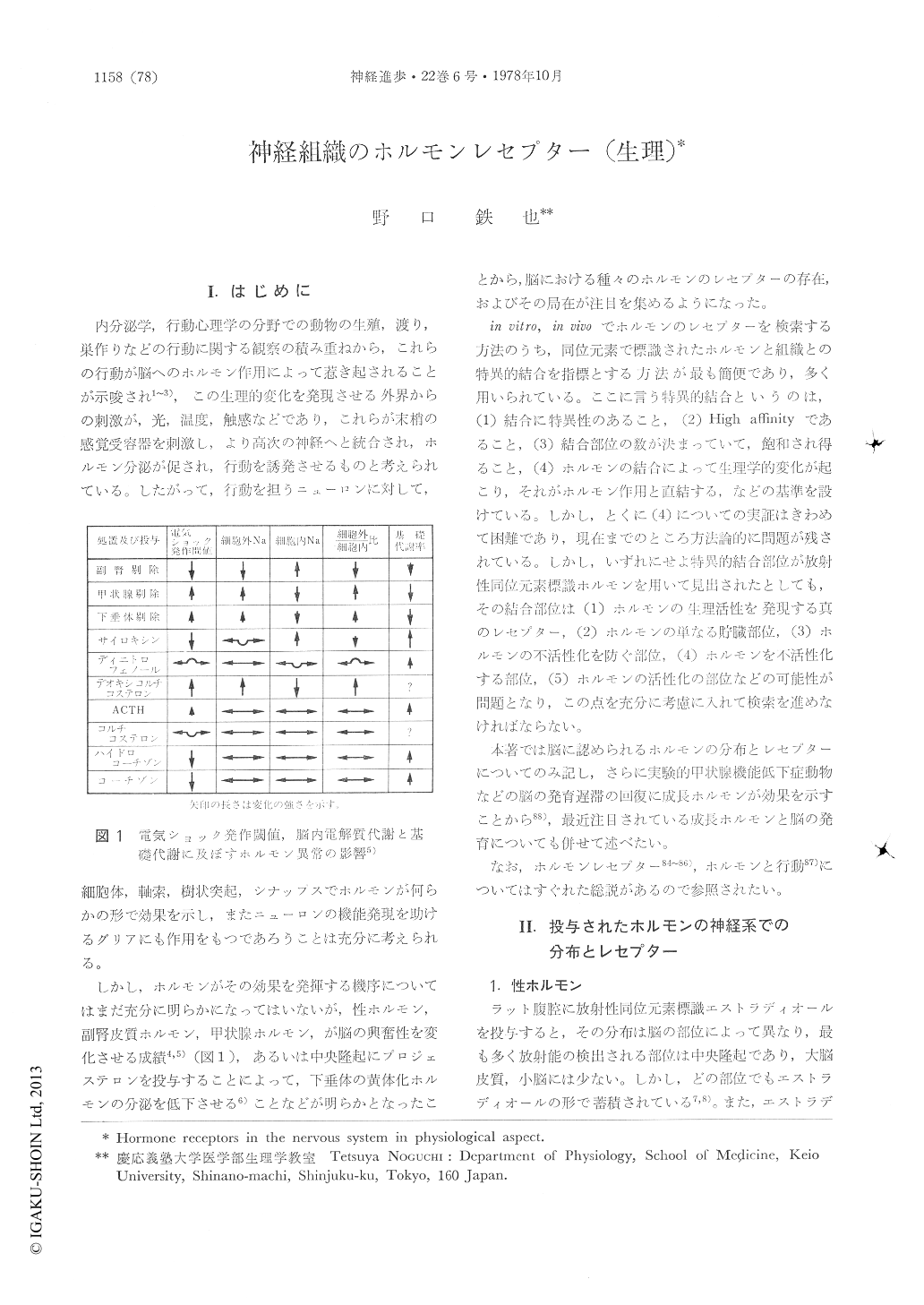Japanese
English
- 有料閲覧
- Abstract 文献概要
- 1ページ目 Look Inside
I.はじめに
内分泌学,行動心理学の分野での動物の生殖,渡り,巣作りなどの行動に関する観察の積み重ねから,これらの行動が脳へのホルモン作用によって惹き起されることが示唆され1〜3),この生理的変化を発現させる外界からの刺激が,光,温度,触感などであり,これらが末梢の感覚受容器を刺激し,より高次の神経へと統合され,ホルモン分泌が促され,行動を誘発させるものと考えられている。したがって,行動を担うニューロンに対して,細胞体,軸索,樹状突起,シナップスでホルモンが何らかの形で効果を示し,またニューロンの機能発現を助けるグリアにも作用をもつであろうことは充分に考えられる。
しかし,ホルモンがその効果を発揮する機序についてはまだ充分に明らかになってはいないが,性ホルモン,副腎皮質ホルモン,甲状腺ホルモン,が脳の興奮性を変化させる成績4,5)(図1),あるいは中央隆起にプロジェステロンを投与することによって,下垂体の黄体化ホルモンの分泌を低下させる6)ことなどが明らかとなったことから,脳における種々のホルモンのレセプターの存在,およびその局在が注目を集めるようになった。
Abstract
From the accumulated findings concerning to reproductive, migrational and nesting behaviors which have been done by endocrinologist and psychologist, these behavioral responses represent the outward manifestation of hormones acting upon the brain. Although the manner in which the various hormones exert their effects still remains uncertain, there are many evidences for the effects on brain excitability by sex hormone, adrenal corticoids and thyroid hormone. Today, it becomes acceptable that a hormone must have some im-portant effect on the neurons, either at the cell bodies, dendrites, axon or synaptic junctions.

Copyright © 1978, Igaku-Shoin Ltd. All rights reserved.


